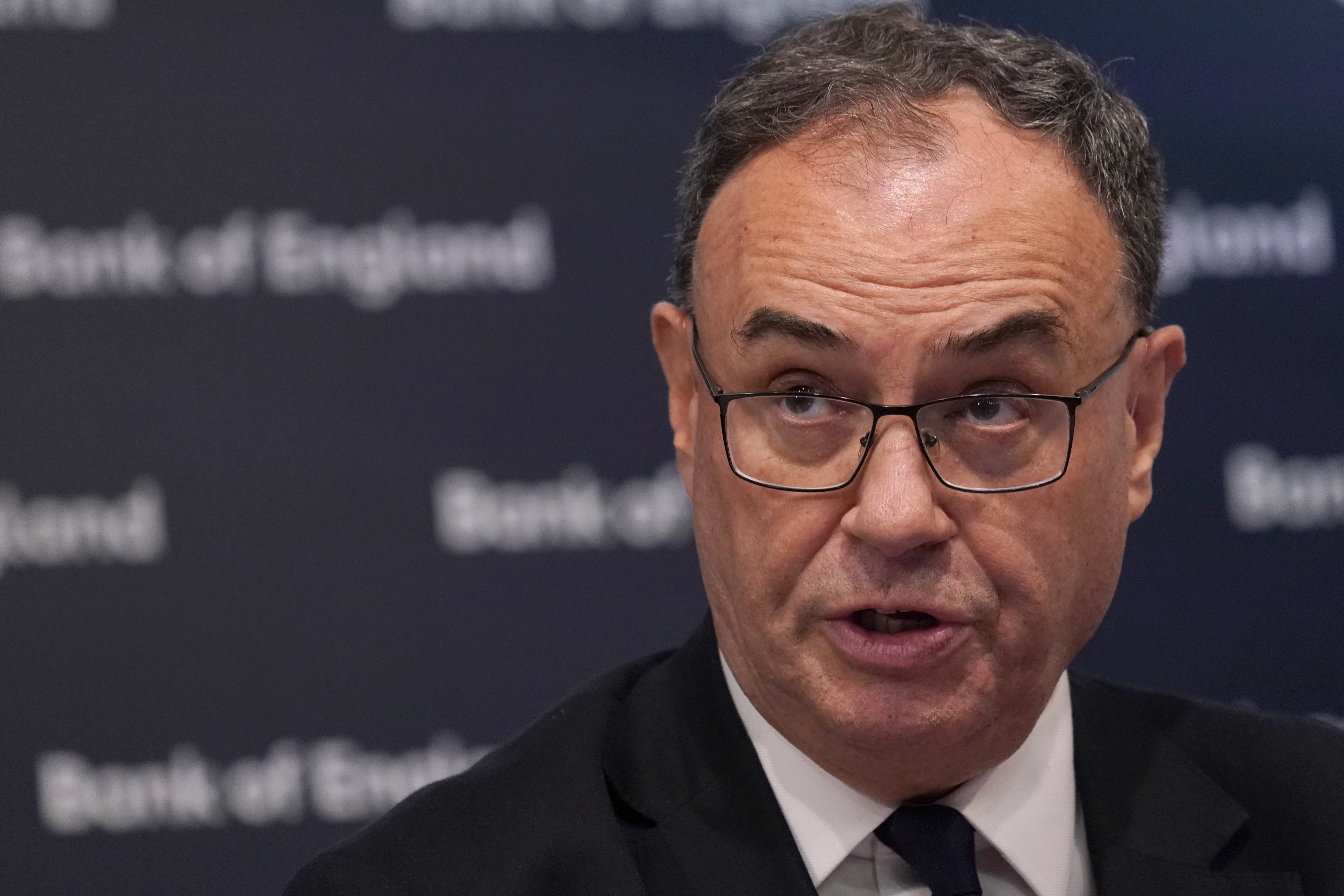How will the interest rate cut affect you? From inflation to mortgages
Here’s what the Bank of England’s interest rate cut could mean for you

Your support helps us to tell the story
From reproductive rights to climate change to Big Tech, The Independent is on the ground when the story is developing. Whether it's investigating the financials of Elon Musk's pro-Trump PAC or producing our latest documentary, 'The A Word', which shines a light on the American women fighting for reproductive rights, we know how important it is to parse out the facts from the messaging.
At such a critical moment in US history, we need reporters on the ground. Your donation allows us to keep sending journalists to speak to both sides of the story.
The Independent is trusted by Americans across the entire political spectrum. And unlike many other quality news outlets, we choose not to lock Americans out of our reporting and analysis with paywalls. We believe quality journalism should be available to everyone, paid for by those who can afford it.
Your support makes all the difference.The Bank of England has announced interest rates have been cut for a second time this year.
The Bank’s base rate has dropped from 5 per cent to 4.75 per cent, following on from a similar cut in August. The change will make the cost of borrowing cheaper in the UK, but also lessens returns on savings.
Interest rates are a key tool that the Bank uses to control the level of inflation. After the August drop from 5.25 per cent to 5 per cent, inflation also dropped unexpectedly.
In September, the inflation rate (CPI) reached 1.7 per cent, dropping below the Bank’s 2 per cent target for the first time in more than three years.
This is understood to be a driving factor behind today’s decision. However, tax changes announced at Labour’s Budget in October and Donald Trump’s victory in the US have caused some longer-term market uncertainty.
Here’s everything you need to know about interest rates:
What are interest rates?
An interest rate is a measure that tells you how high the cost of borrowing money is, or how high the rewards of saving are.
If you are borrowing money, typically from a bank, the interest rate on that money is the amount you will be charged for borrowing it.

It is a charge on top of the total amount of the loan and will be shown as a percentage of the overall.
Higher percentages mean paying more money to the lender for borrowing the money.
If you are saving money in a bank account, the interest rate on that money is the amount you will accrue on top of your savings. Banks will pay you a percentage of your total savings, typically at the end of the year.
How do interest rates affect inflation?
Low interest rates are used to discourage people from piling up their money in savings. High interest rates encourage saving because people get a better return for the money you are putting away.
This in turn has an effect on the price of goods.
When interest rates are low, people might spend more and this might cause retailers to put up the price of goods.
When rates are high, demand might fall as people put more money into their savings pots. This, in theory, should drive down the prices of goods and services.
However, rising prices are not a direct result of interest rate changes. Other things, including the supply of money and underlying costs, affect prices and cause inflation.
Interest rates can only help manage inflation, not control it directly.
How do interest rates affect mortgages?
Mortgage rates are agreed with individual borrowers and lenders, and are usually higher than the Bank of England’s base rate, though some types of mortgages follow movements in the Bank of England’s base rate.
Most people with a mortgage will be affected by a change in interest rates in some way. How exactly will depend on the type of mortgage, among a range of other factors.

Discounted, tracker and Standard Variable Rate (SVR) mortgages
A SVR is set by the mortgage lender and usually follows movements in the Bank of England’s base interest rate.
When interest rates rise, lenders are likely to pass this on to customers.
Tracker mortgages are another type of variable rate mortgage, but they’re linked to the Bank of England base rate. Rates may rise more on a tracker mortgage compared to an SVR.
For example, a tracker mortgage could be set 1 per cent above the base rate. In December 2021, this would mean a mortgage rate would be 1.1%. However, in June 2023, it would have risen to 6 per cent.
Fixed-rate mortgage
Mortgage rates on a fixed-rate will remain the same for the agreed period of time between borrower and lender, regardless of whether interest rates rise or fall.
Once the fixed term ends, borrowers are automatically moved to the mortgage lender’s SVR, which is affected by the Bank of England’s rates.
Join our commenting forum
Join thought-provoking conversations, follow other Independent readers and see their replies
Comments